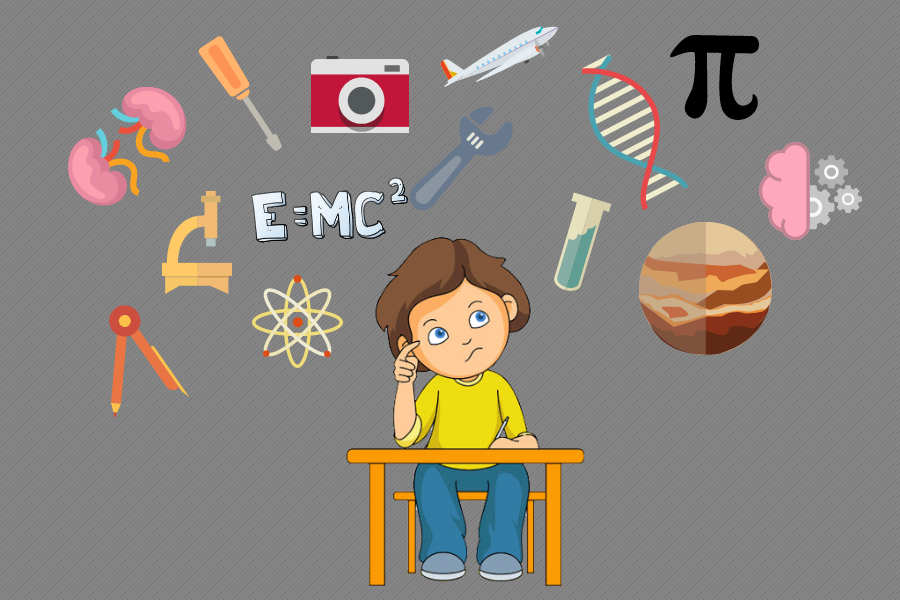Whitman should offer an AP Capstone course
AP Capstone offers students an opportunity to learn to research on a professional level.
February 20, 2020
Jess Berman, a junior at Hall High School in West Hartford, Connecticut, has always had an interest in health and nutrition. After learning that the Mediterranean diet — a diet that emphasizes eating vegetables, fruits, whole grains and nuts — is linked to increased mental processes, Berman wanted to find out whether diet could help people with Alzheimer’s disease. Many high school students wouldn’t know where to go from there, but Berman has a platform to test her hypothesis: her AP Research class.
Over the course of the school year, Berman will conduct her own research, analyzing diet trends among Alzheimer’s institutions and facilities. To see the extent that Alzheimer’s care facilities are incorporating the Mediterranean diet into their meal plans, she’ll send surveys, interview patients and analyze dining menus. At the end of the year, Berman will compile her findings into a 4000 to 5000 word essay and 15 to 20 minute presentation — both of which make up her final AP score.
Jess is one of thousands of students across the country who is taking AP Capstone, a two-year program based on two full-year courses: AP Seminar followed by AP Research. Rather than teaching specific subject information, both courses focus on developing skills like critical thinking, collaboration, conducting research, and public speaking to prepare students for college-level work.
In AP Seminar, students learn researching strategies — including how to analyze articles and how to discern an author’s credibility — which they then apply the following year in AP Research in order to conduct a year long research project on a topic of their choice.
Currently, only three high schools in Montgomery County offer AP Capstone: Damascus, Poolsville and Wootton. Whitman should offer AP Capstone so that students can improve their analytical and critical thinking skills and have the unique opportunity to conduct their own research in high school.
High school students have written their fair share of research papers and are familiar with the process — create a research question, find and evaluate sources, and come to a conclusion. AP Research takes this process a step further; rather than solely analyzing other sources, students in AP Research design and implement their own investigation of a topic — something most students aren’t exposed to until college.
Through research, students also develop analytical and communication skills that are globally sought after, according to a University of Skovde article.
Giving students the opportunity to choose their own topics also allows them to explore subjects they’re passionate about — especially topics they wouldn’t typically have the opportunity to research in other classes. When writing research papers, students may have some flexibility, but they’re often confined to a specific concept or field.
Michelle Hanson, an AP Research at Wootton High School, feels that her students learn better when they are able to select their own topics.
“When students can choose a topic that is personally important to them, they engage in a way with the material that goes far beyond simply doing the work,” Hanson said. “They eat, live, sleep and breathe it because it matters to them.”
AP Capstone also gives students the unique opportunity to work on a project over an extended period of time, similar to work in college courses. The average high school student doesn’t have an assignment that spans over the course of a school year; in high school, a typical essay or research paper is between 3-5 pages, meaning students may not be prepared for college-level papers or projects.
“When you take college classes, sometimes you’re going to be asked to write 10 to 15 page essay,” English teacher Christopher Williams said. “That’s not really something you do in high school unless you take a class like this.”
AP Research also teaches students precise time-management. Because the class comes with a significant workload, students have to remain on top of their work to be successful. To submit their final project to the College Board on time, students have to make sure they’re meeting their own personal deadlines throughout the year — forcing them to be organized, self motivated and responsible.
Opponents argue that AP Capstone in unnecessary; Whitman already has classes that teach students how to write and research at a high level, like AP English Language and Composition. While it’s true that Whitman already offers challenging courses, AP Capstone gives students a unique, heightened control over their work that they won’t find in other classes. In AP Research, students have almost no teacher guidance, forcing students to hold themselves accountable for their work. Independent research requires students to be active learners — they have to learn to work through kinks in their project on their own.
Research is a crucial skill to develop, regardless of field of study. Whitman should provide students with early exposure to high level research so they can be better prepared for the future.







